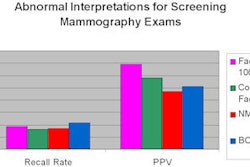Calling GE Healthcare one of "two pillars of growth" within General Electric, GE president and CEO Jeffrey Immelt today launched healthymagination, a six-year, $6 billion global initiative to boost the company's focus on improving the quality of healthcare.
The program calls for increased funding for product development, with a major focus on healthcare IT, as well as initiatives such as an internal employee wellness program within GE. By 2015, GE plans to allocate $3 billion toward healthcare technology, $2 billion for financing, and $1 billion for technologies from the rest of GE "that will target improving cost, quality, and access by 15%," Immelt said.
The Stamford, CT-based GE and its Chalfont St. Giles, U.K.-based healthcare division will accomplish those goals by "targeting more products at more price points, accelerating healthcare IT, improving access, and driving health into the home and into more preventative settings," Immelt added.
Specifically, GE is targeting a 15% reduction in the cost of procedures and processes with GE technologies and services; a 15% increase in people’s access to services and technologies, reaching 100 million more people every year; and improving quality and efficiency by 15% for customers through simplified and refined healthcare procedures and standards of care.
One healthymagination goal is to create more than 100 new innovations over the next six years to produce low-cost outcomes at more price points.
Global initiative
GE also plans to partner with other companies, healthcare providers, and the public to make the entire healthcare system more efficient. "Designing products in China for China, in India for India, and designing a mammography clinic in Turkey -- those things will be big drivers of healthcare and healthcare growth in the future," Immelt said.
With healthcare IT as the "the buzzword du jour," Immelt said, one strategy is to advance the distribution of its electronic medical record technology. GE Healthcare, Intermountain Healthcare, and the Mayo Clinic have developed a physician decision-support application designed to help doctors provide evidence-based care. GE plans a commercial launch of the technology next year.
Part of the $2 billion in financing planned for healthymagination will be to fund healthcare IT implementation. The entire program, Immelt noted, is not dependent on the U.S. government's economic stimulus program. "We would do this with or without the stimulus," he added.
GE also wants to expand its healthcare service programs beyond its installed base to more hospital settings to improve customer productivity. GE Healthcare's Performance Solutions service business has set a target of $1 billion in reduced costs for customers over the next five years to help hospitals become more efficient through process redesign.
Internally, GE will invest in wellness and health programs for its employees to help keep the company's annual rate of healthcare costs equal to or less than the rate of the consumer price index.
Product validation
To gauge healthymagination's progress over the next six years, GE has signed a contract with global consultancy firm Oxford Analytica of Oxford, U.K., to validate the initiative's efficacy. Oxford Analytica has been working with GE in developing a practical methodology to define healthymagination's targets, against which the company's performance can be measured.
Oxford Analytica will also review GE products according to three criteria -- cost, quality, and access to care -- and products that meet the standards will be certified as being "healthymagination-validated," according to Omar Ishrak, president and CEO of the Healthcare Systems unit within GE Healthcare. The criteria that Oxford Analytica will use will be objective, standardized, and publicly available, and will also be available to other companies, Ishrak said.
In addition to representing GE's commitment to the healthcare business, the healthymagination program demonstrates that the company now recognizes that its priorities need to be more than just moving products, according to John Dineen, president and CEO of GE Healthcare.
"In the past, there has been a pursuit of technology, just trying to move the technology to the next level, and not enough discussion of how we use this technology to make the healthcare system perform better," Dineen said. "We are now doing product development with an eye toward the clinical and economic value proposition ... and topping that with healthcare IT that tells [clinicians] when is the right time to use the technology."
By Wayne Forrest
AuntMinnie.com staff writer
May 7, 2009
Related Reading
GE adds to ultrasound line, May 5, 2009
GE to train Saudi medical professionals, April 20, 2009
GE Healthcare's numbers slide in Q1, April 17, 2009
GE inks deal with Brigham and Women's, April 14, 2009
GE unveils EHR offerings, April 8, 2009
Copyright © 2009 AuntMinnie.com



















